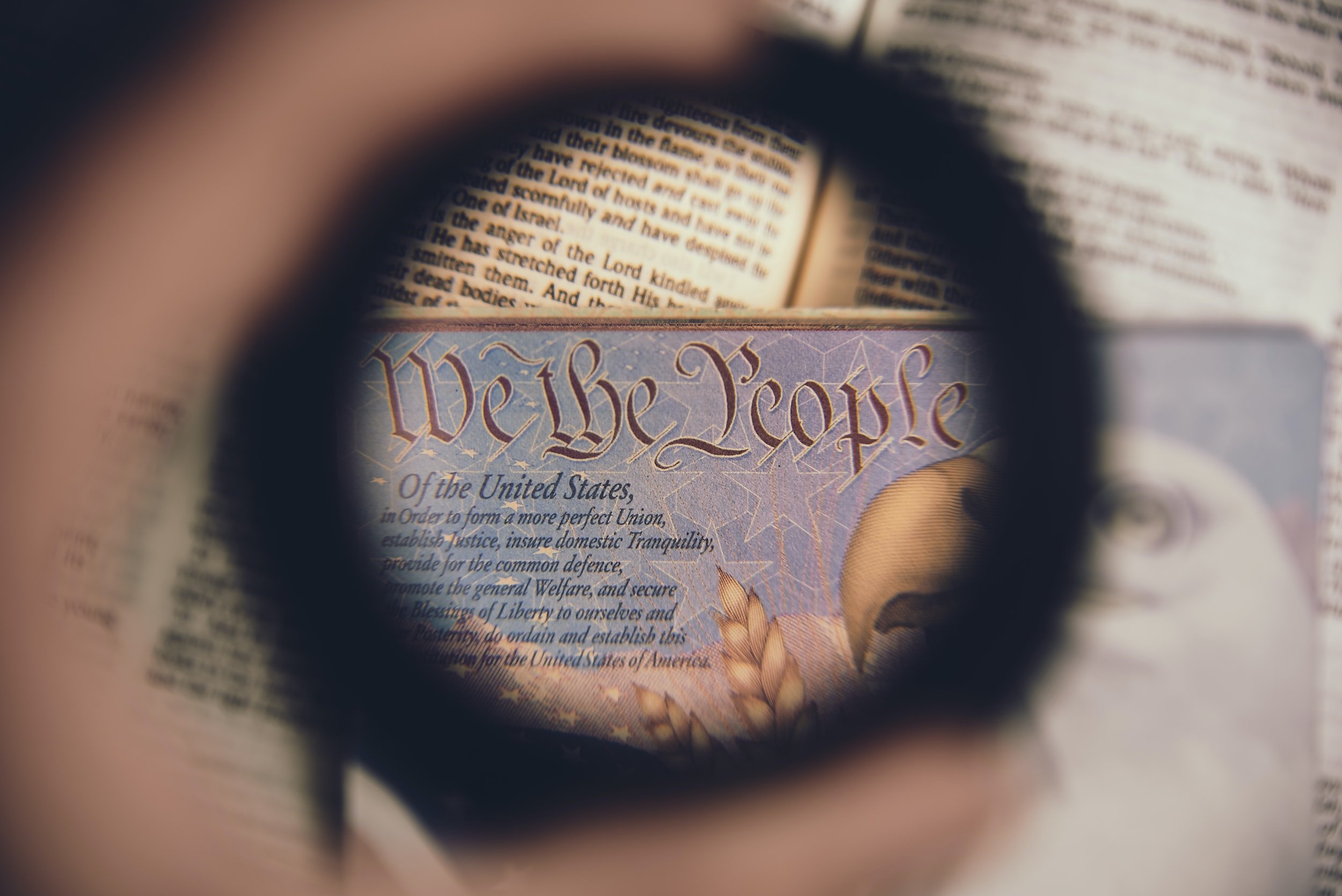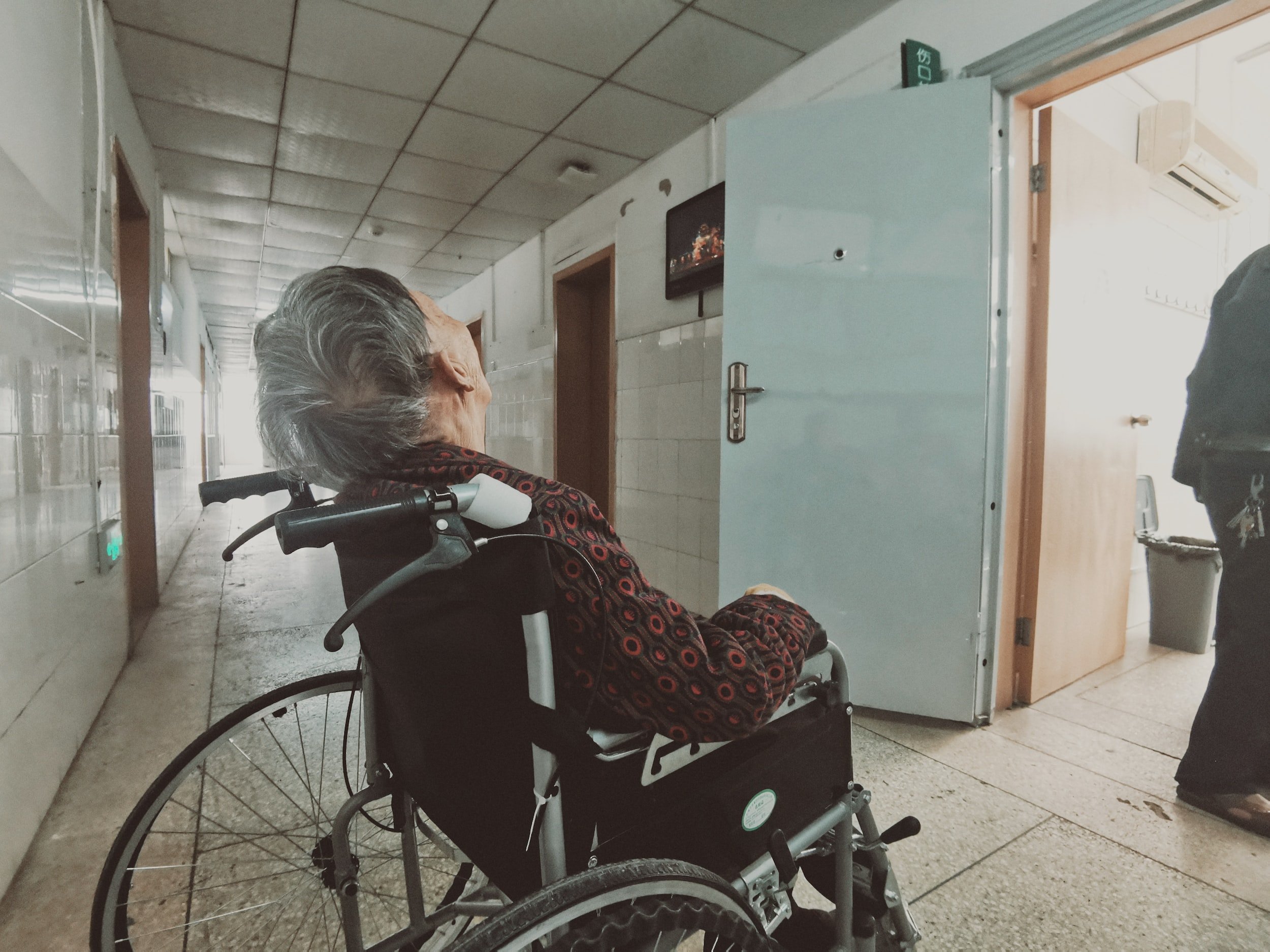case studies
Cases by Topic
- Behavioral Services not Baker Act 1
- Discrimination on the Basis of Disability 6
- Discrimination on the Basis of Race 2
- Discrimination on the Basis of Sex Gender Identity and Sexual Orientation 5
- Drivers’ License Suspensions for Municipal Ordinance Violations 1
- Ensuring Due Process 7
- First Amendment 5
- Food Sharing is Not a Crime 2
- Government Accountability & Access to Courts 4
- High Quality Education 4
- Home & Community-based Medicaid Services 13
- Homeless 12
- Juvenile Justice 3
- LGBTQ Rights 3
- Mental Health 5
- Promoting Fairness and Due Process 7
- Property Sweeps 2
- Protecting Freedom of Speech 3
- Right to Ask for Help 3
- Right to Be in Public Places 2
- Sleeping is a Human Need 1
- Students with Disabilities 6
- Transgender Rights 2
Fane v. Florida State Bd. of Accountancy
In a First Amendment challenge to the restrictions on certified public accountants from soliciting business in person, the U.S. Supreme Court ruled that Florida’s ban was an impermissible restriction of commercial speech. Co-counsel was Public Citizen Litigation Group.
Lake Worth for Global Justice, Inc. v. City of Miami
This First Amendment case came out of the political demonstrations against the first U.S.-based meetings of the Free Trade Area of the Americas to take place in Miami. Plaintiffs sought, inter alia, a temporary restraining order to prevent enforcement of the City of Miami’s unconstitutional permit laws concerning marches and demonstrations on public sidewalks, streets, and parks, as well as other regulations restricting the size and activities of public assemblies and parades.
Killmon, et al. v. City of Miami et al.
When law enforcement coordinated an all-out assault on the First Amendment during the protests of the Free Trade Area of the Americas (FTAA) in November 2003 in Miami, SLC successfully challenged the mass false arrests and use of excessive force by over 40 local, state and federal law enforcement agencies to deliberately disrupt lawful protests. We won significant monetary settlements for violations of protesters’ rights to challenge police and government misconduct based on false arrest, use of excessive force and unlawful political profiling against activists for merely exercising their First Amendment rights. Co-counsel were Carol A. Sobel, Robert W. Ross, Jr., Mara Verheyden-Hilliard, Carl Messineo and Jonathan Moore.
Tummino, et al. v. Hamburg
The right to privacy and equal protection won out over the federal Food and Drug Administration’s (FDA) unprecedented political interference and unjustified delay in approving emergency contraception (also known as the Morning-After Pill) as an over-the-counter drug for all women without any age restriction. With plaintiffs from Gainesville, Florida, this action was brought on behalf of women, girls, reproductive rights organizations and National Women’s Liberation. After an eight-year battle, the Court ordered the FDA to make emergency contraception available over-the-counter and eliminated the prescription requirement, age restrictions, and any other restrictions on how it is sold. This suit had nationwide impact. Co-counsel was the Center for Reproductive Rights.
Equal Rights Amendment litigation (2020)
After Virginia became the 38th state to ratify the Equal Rights Amendment, litigation ensued to compel the National Archivist to publish the ERA in the US Constitution. With pro bono co-counsel Baker Donelson, we filed an amicus in the federal Virginia and Massachusetts cases on behalf of the US Council of Mayors and ERA organizations from Georgia, South Carolina and Louisiana. We explained the import and impact of the ERA in a policy brief, arguing that ratification of the ERA would put the United States in the company of all other industrialized nations in guaranteeing equality for women; lead to sex discrimination claims being subjected to a strict scrutiny analysis by courts along with race, religion and national origin; and provide uniform protections from sex-based discrimination across the United States for the first time in history.
The Florida Bar v. Moses
In another unauthorized practice of law case, we represented a labor relations consultant for representing his employer in a state administrative proceeding. This case established precedent that resolved the conflict between the Florida Supreme Court's authority to regulate the practice of law and the Legislature's authority to provide for and regulate administrative agency proceedings. The Florida Supreme Court ruled that the Legislature has the authority to allow qualified lay advocates to represent others in administrative proceedings. Following this decision, SLC participated extensively in drafting model rules, which were adopted, governing representative appearances of lay advocates before state agencies.
The Florida Bar v. Furman
More options are needed to address the justice gap and assist those who cannot afford a lawyer. Two unauthorized practice of law cases resulted in making it easier for litigants to represent themselves or hire qualified lay advocates. SLC represented a paralegal being prosecuted by The Florida Bar for unauthorized practice of law for assistance she provided to self-filers seeking uncontested divorces. This case led to the Florida Supreme Court’s directive to the Bar to undertake a study of Florida's unmet legal needs. The “Furman Study” led to the creation of the Interest on Trust Accounts (IOTA) Program for funding legal services for the poor and the adoption of simplified divorce procedures and other reforms. Co-counsel was Public Citizen Litigation Group.
Ledger v. City of St. Petersburg
For more than five years, indigent litigants in the Florida Sixth Judicial Circuit were denied access to appellate courts for one reason: they could not afford to pay the $400 filing fee. When SLC attempted to file appeals with the circuit court on behalf of homeless individuals, our clients had the courthouse doors slammed in their face due to an administrative order that prohibited filing fee waivers for indigent litigants. SLC challenged the administrative order. The appellate court ordered the circuit court to grant indigent filing fee waivers to all of our clients.
Hermann v. Ruvin & Caballero v. Ruvin
Pro se litigants were not allowed to file family court pleadings (including name change petitions) without first purchasing and paying for services of the Clerk’s Self-Help Center. Our clients attended a forms preparation clinic hosted by Legal Services of Greater Miami and their pro se petitions for name change that were filed through Florida’s E-Filing portal were “abandoned” by the Clerk of Court who refused to docket the petitions. We filed petitions for writ of mandamus with the Third DCA, which were transferred to the Circuit Court. The Clerk refused to docket and after we filed new writs of mandamus compelling the docketing of the original writs, the Clerk docketed the original writs.
City of St. Petersburg v. Wright
This case was filed under Florida's Sunshine Law challenging the City's amendments to its trespass ordinance in violation of statutory requirements for enacting ordinances. During SLC's Catron litigation against the St. Petersburg, the City amended its trespass ordinance in response to the Eleventh Circuit Court of Appeals decision in 2011. At the time, it appeared the City had violated the Sunshine Law by deliberating in secret during a closed attorney-client session to amend the ordinance, but SLC had to wait until after the Catron litigation concluded at the end of 2012 to obtain a copy of the transcript from the closed session. SLC obtained the transcripts and filed this lawsuit on behalf of Rev. Bruce Wright, who we also represented in a challenge to a trespass warning banning him from Williams Park for one year.
Buxton v. City of Plant City, Fla.
In a landmark case widely cited by courts, SLC established the right of public employees to receive a name-clearing hearing after termination of their employment when stigmatizing information has been made part of the public record or otherwise published.
Grayden v. Rhodes
SLC represented extremely low-income tenants who were evicted from their apartment building with less than a day’s notice because the City of Orlando had decided to condemn the building. The federal appeals court agreed with SLC that tenants have a constitutional right to contemporaneous notice of their right to a hearing in a condemnation action against the apartment owner. This opinion is the touchstone of federal due process law in the Eleventh Circuit and is cited by courts in hundreds of other cases. We co-counseled with Greater Orlando Area Legal Services and pro bono counsel Cathy L. Lucrezi.
Mosher v. State of Fla.
A person with a severe and persistent mental illness who had been institutionalized for significant periods of time was found not competent to proceed to trial after a charge of aggravated battery, and she was confined to the forensic unit at Florida State Hospital (FSH). After confinement and treatment for about two years, FSH reported that she would not regain competency. The trial court determined that state law required her to be confined for five years.
Washington, et al. v. DeBeaugrine
Issuing a preliminary injunction, the federal district court prohibited the Agency for Persons with Disabilities (APD) from terminating or reducing Medicaid Waiver recipients’ benefits prior to affording them an evidentiary hearing. As a result of the preliminary injunction, SLC negotiated a settlement with APD that resulted in a permanent injunction that applies to the putative class of more than 4,000 individuals with developmental disabilities.
Catron v. City of St. Petersburg
On behalf of homeless people who were trespassed from city parks, this case established that all people enjoy a constitutionally protected liberty interest to be in public places of their choosing and that the government must provide due process if it deprives people of this right by issuing trespass warnings. Co-counsel were the National Law Center on Homelessness & Poverty and Florida Institutional Legal Services.
Moreland et al. v. Palmer
In a statewide class action, SLC represented persons with developmental disabilities who challenged, under federal due process, the adequacy of notices being used to reduce services in a new Florida Medicaid Waiver program—the iBudget program. A mediated settlement resulted in: 1) cessation of arbitrary reductions of services; 2) reinstatement of millions of dollars in benefits for the settlement class, impacting thousands of people; 3) policy changes to ensure notice is sent to both the person and his/her legal representative; and 4) policy changes to provide notices in English and in the person’s primary language. Nancy E. Wright was co-counsel.
Cummings v. State of Florida (Marion Cnty.)
SLC and the ACLU of Florida achieved a victory in Marion County Court for Anthony Cummings, a homeless man who had been illegally assessed $824 in court costs and had his driver’s license suspended in three cases of “open lodging” under an Ocala ordinance. Municipal ordinance violations are not criminal under Florida law, and driver’s license suspensions are only permitted for unpaid criminal financial obligations.
Gotshall, et al. v. City of Titusville, and Adkins et al. v. City of Titusville
In June 2011, in preparation for the final shuttle launch, the City of Titusville cleared 11 homeless encampments, destroying the personal property of a number of individuals who lived at these camps. The City used industrial equipment, employed temporary workers, and used pick-up trucks to sweep the property of homeless individuals. The City’s unlawful actions deprived people of personal belongings that are critical to their survival, such as clothing, medication, tents and blankets, as well as irreplaceable personal possessions, such as family photographs, a WWII flag, personal records, identification documents, and even the ashes of a deceased parent contained in an urn.
Stone v. City of Fort Lauderdale
In May 2017, the City of Fort Lauderdale designed a plan to temporarily close Stranahan Park and the camp adjacent to the park by clearing out all debris and personal property belonging to residents of the camp. Sixteen individuals experiencing homelessness filed suit alleging that the City unlawfully seized and destroyed the plaintiffs’ property during the City’s property sweep of the Stranahan park camp, and did not provide residents of the camp advance notice of the sweep, nor any means to retrieve their property to avoid the destruction of their belongings.
McArdle v. City of Ocala
Southern Legal Counsel represented Patrick McArdle, Courtney Ramsey, and Anthony Cummings, three individuals experiencing homelessness who had been repeatedly arrested under the city’s open lodging ordinance that made it a crime for homeless persons to sleep outside. The City also issued trespass warnings, banning them from returning to public parks permanently without providing an opportunity for a hearing.




















